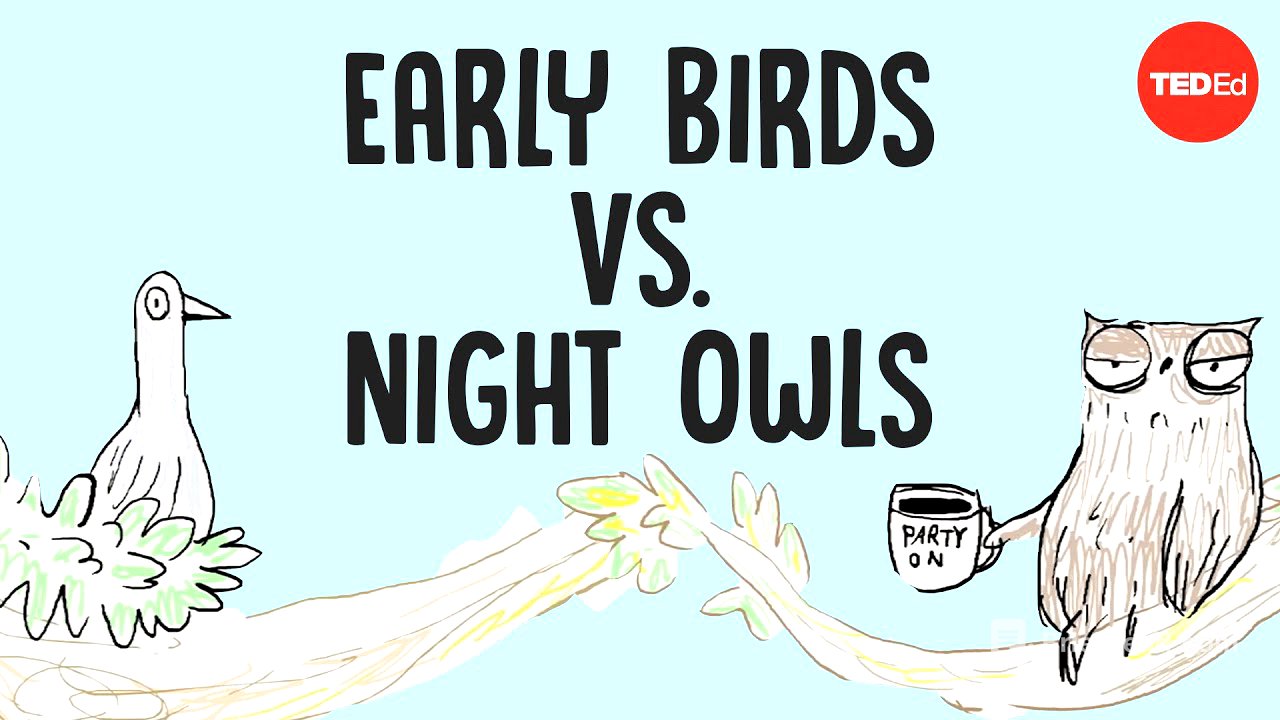TLDR;
This video explores the science behind sleep schedules, differentiating between early birds and night owls, and how our circadian system influences these preferences. It explains how the circadian system, anchored in the hypothalamus, responds to light exposure to regulate our internal clock and hormone flow, affecting our sleep-wake cycles. While genetics play a role, the video emphasizes the importance of consistent sleep and light hygiene in maintaining a healthy circadian rhythm, regardless of individual preferences.
- Circadian rhythms are influenced by light exposure and regulate hormone production.
- Consistent sleep and light hygiene are crucial for maintaining a healthy circadian system.
- Individual sleep preferences vary, but consistency is key to adequate rest.
Introduction: Early Birds vs. Night Owls [0:07]
The video introduces the concept of early birds and night owls, illustrating their contrasting daily routines and energy levels. Early birds are energetic in the morning but tire quickly as the day progresses, while night owls struggle in the morning but become more active and alert later in the day, often staying up late into the night. The video poses the question of how many people truly fit into these extreme categories and whether these sleep schedules are predetermined or can be changed.
The Circadian System: Your Internal Clock [1:03]
The video explains that our sleep behaviors are governed by the circadian system, which is anchored by nerve cell clusters in the anterior hypothalamus. These nerve cells respond to light exposure through the eyes, tracking the day-night cycle and dictating the body's internal clock, or circadian rhythm. This rhythm regulates hormone flow and coordinates organ functions, particularly managing the transitions between wakefulness and sleep.
How the Circadian System Predicts Sleep [1:41]
The circadian system predicts when we need sleep by tracking light exposure and timing during waking hours. For example, if someone consistently sleeps around 10 pm, the system starts producing melatonin about two hours earlier to signal bedtime. While our sleep habits mold this rhythm, individual hormonal differences can cause variations in how people experience their circadian rhythm.
The Role of Hormones and Habits [2:17]
The video highlights that while individual bodies are unique and hormonal differences exist (e.g., cortisol peaks), one cannot entirely change their body's preferred sleep schedule. However, habits can either support or hinder the circadian rhythm. Consistent sleep hours help the body predict hormone release, while irregular sleep patterns can weaken the circadian system, leading to health risks like metabolic disorders and weakened immunity.
Light Hygiene and Maintaining Circadian Rhythm [3:20]
The video emphasizes the importance of light hygiene, which involves ensuring a strong contrast between bright daylight and dim nighttime light, with sunlight being the most effective synchronizer. Exposure to sunlight, even on overcast days, helps teach the body when to be active and alert. It's difficult to maintain a sleep schedule that opposes the body's natural preferences, and even a single night of disruption can reset the circadian system.
Conclusion: Consistency is Key [4:02]
The video concludes that whether someone is an early bird, night owl, or somewhere in between, consistency is most important. There is no wrong time to wake up or go to sleep as long as one gets enough rest for the day ahead.









